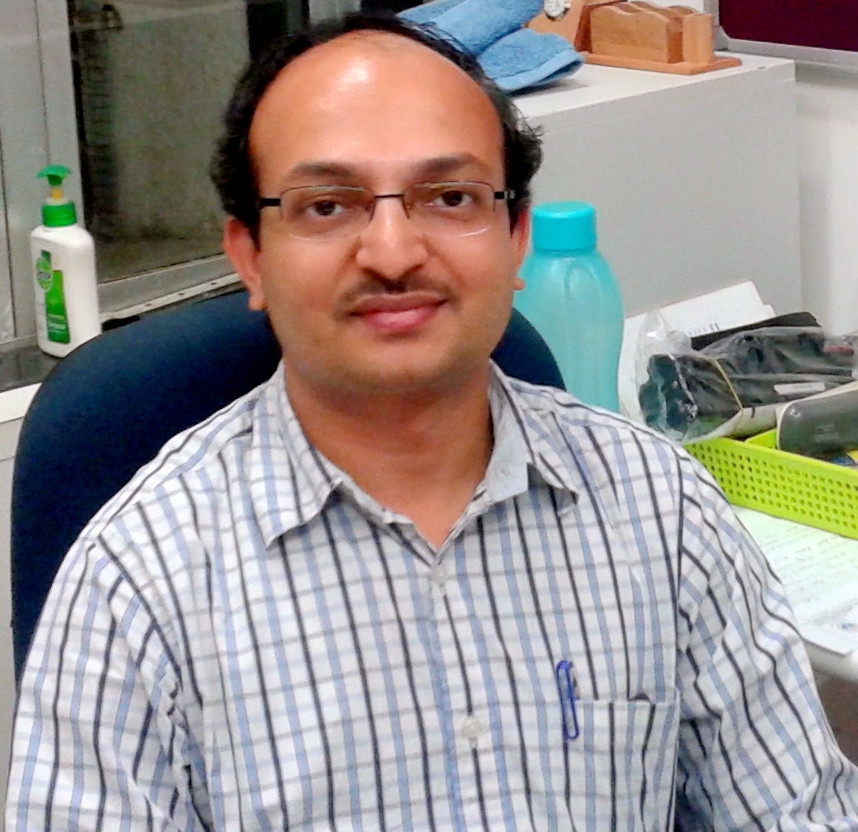
I am involved in teaching and research as Professor at the Environmental Science and Engineering Department, IIT Bombay since December 2007. I am also an associated faculty member of Interdisciplinary Programme in Climate Studies (currently DST - Centre of Excellence in Climate Studies) and Centre for Urban Science & Engineering , IIT Bombay. Before joining IIT Bombay, I worked as a Post-Doctoral Fellow at the University of Western Ontario , Canada under the mentorship of Prof. Slobodan P Simonovic . I obtained my Ph.D. on “Uncertainty Modeling in Water Resources Systems” from Indian Institute of Science (IISc), Bangalore, India under the supervision of Prof. P. P. Mujumdar . My primary research interest focuses on Environmental Systems Analysis (Water quality management, Solid waste management), Uncertainty Modeling, and Risk-Vulnerability Analysis to Climate-induced Natural Hazards, Climate change impact assessment. I upgraded my Masters degree to Ph.D. programme through the recommendation, decided on academic excellence basis, by the Senate Committee, IISc Bangalore. I also received BOYSCAST fellowship from Department of Science and Technology (DST), Govt. of India to pursue research at Duke University, North Carolina, USA. I have taught more than 35 undergraduate and postgraduate level courses at IIT Bombay, and supervised 11 and co-supervised 4 Ph.D. scholars till date. I am sincerely looking forward to explore new research avenues in the domain of Environmental and Climate Systems.
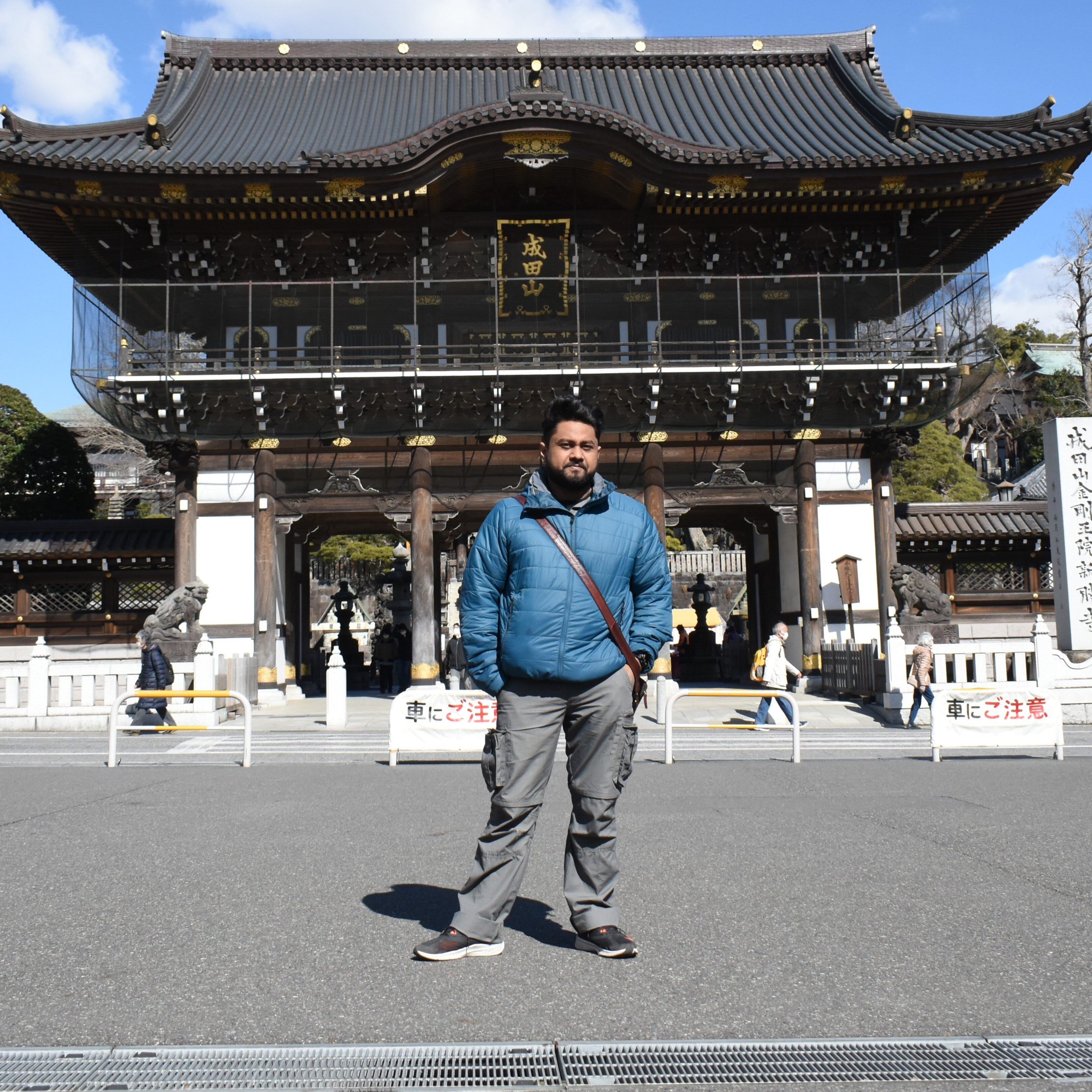
I am currently pursuing my Ph.D. in the Department of Environment Science and Engineering and working with Prof. Subhankar Karmakar. I am working towards understanding the sensitivity of various input parameters of a flood model. And find out which set of input parameters are most sensitive, such that the decision-makers can take informative decision during data monitoring, collection, and retrieval of these data. We are also doing some flow and stage data monitoring at the station level. And also, validation of model outputs using remote sensing data. In various climate forecasting models’ sensitivity analysis is generally performed. We would like to perform sensitivity analysis for flood modeling parameters such that we can improve the model output accuracy. Therefore, improving the model’s over-all performance.
Presently there are no such flood modeling software that allows us to perform such sensitivity analysis within its platform. If inclusion of a sensitivity analysis framework can be done, in a flood modeler then evaluation of flood risk, flood hazard, flood forecasting can be performed with high degree of accuracy. The calculation of the sensitivity of various input parameters has been done in terms of Kullback–Leibler entropy or KL-divergence (D-KL). We have developed a sensitivity analysis framework and have already tested it over a for a rural catchment (Floodplains of the Shilabati River, Paschim Medinipur), that have been presented in AGU fall meeting 2021.The work is been published in the Journal of Environmental Management, Mondal et al., 2023. We are now working to test the same framework for an urban catchment (Mithi River catchment, Mumbai). You can find me in ESRL, second floor in the Environment Science and Engineering Department (ESED) at IIT Bombay.
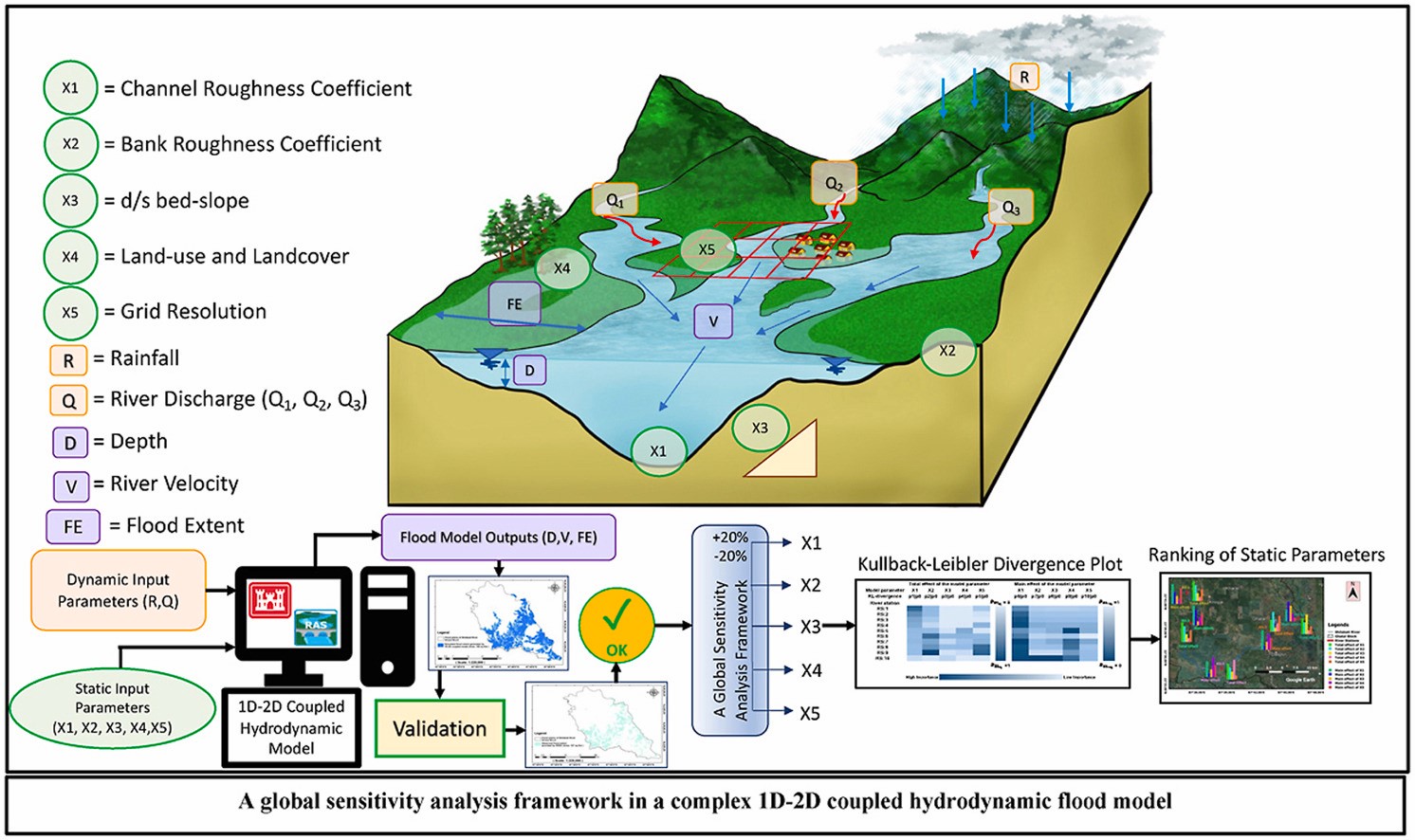
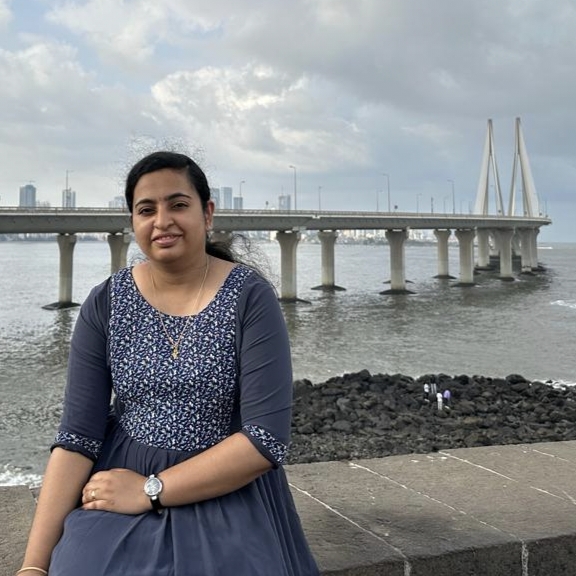
I am currently pursuing my Ph.D at the Indian Institute of Technology, Bombay (IITB), in the Interdisciplinary Programme (IDP) in Climate Studies since 2019. I am working with Prof. Subhankar Karmakar, Prof. Pradip Kalbar and Prof. Arpita Mondal on the topic “Mapping social vulnerability and risk to hydro-climatic extremes over India”. In 2016, I graduated from Mahatma Gandhi University, Kottayam, in Bachelor of Technology (B.Tech) degree in Civil Engineering. After completing my graduation, I joined Cochin University of Science and Technology (CUSAT) for Master of Technology (M.Tech) in Atmospheric Sciences and passed with First Rank, where my research topic was on the “Anomalous behaviour of wet and dry spells of Indian Summer Monsoon Rainfall (ISMR)”. I am currently working towards hazard and risk mapping for the hydroclimatic extremes over India.
Recently, hydroclimatic extremes have become such evident and affected lives the whole way across the world. In this regard, understanding and monitoring the causalities and impacts of these extremes are also important. Thus, it is crucial to identify the factors and mechanisms that determine the location, intensity, and frequency of various hydroclimatic extremes, including floods, heavy precipitation, mass movement (wet), heat waves, droughts and wildfires. Many regions of the Indian subcontinent are becoming highly vulnerable to extreme heatwave events with adverse effects of temperature extremes on life and property. With this backdrop, the overall objective of the current research is to emphasize on mapping social vulnerability and risk to hydroclimatic extremes over India. An improved hazard map along with a precise social vulnerability map, can pave the way to generate a fine-scale risk map of heatwave events over India. You can find me in ESRL, second floor in the Environment Science and Engineering Department (ESED) at IIT Bombay.
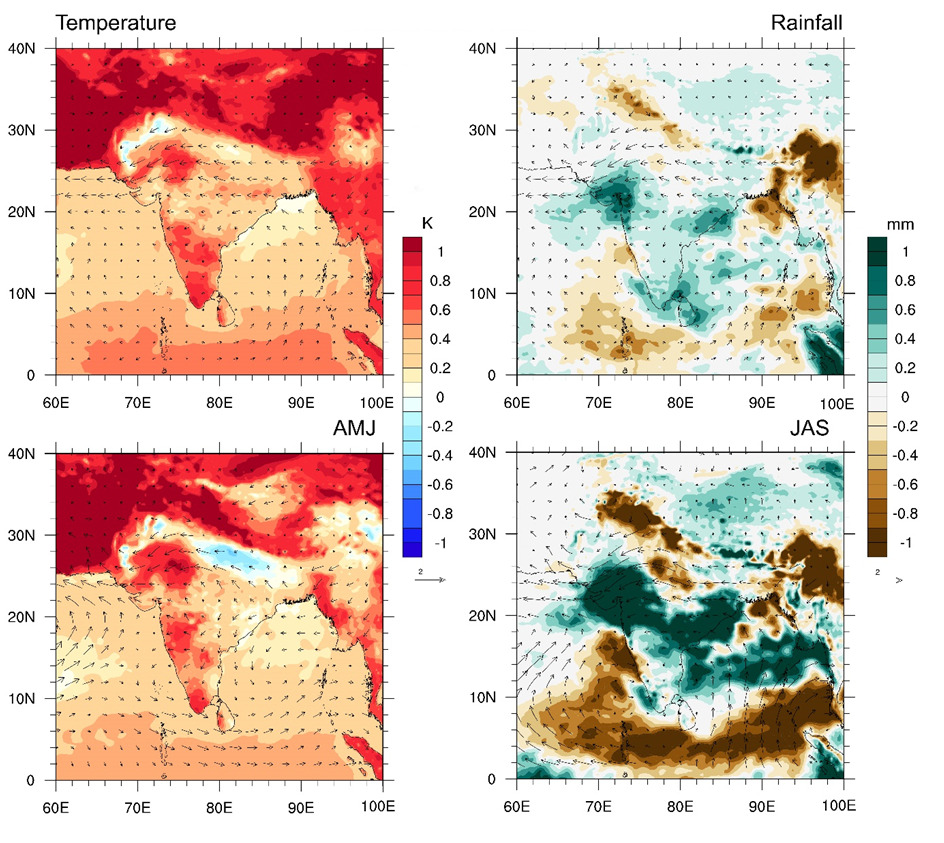
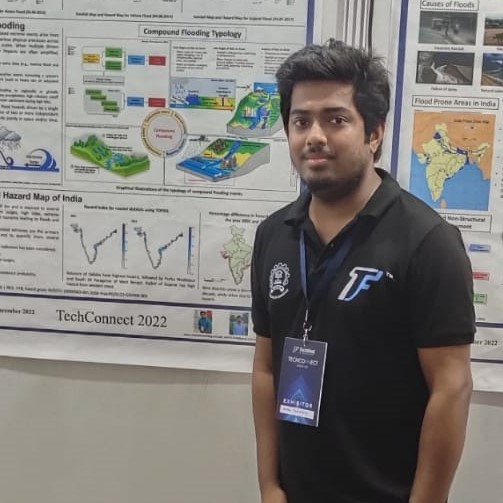
I am currently pursuing my Doctoral Degree in the IDP in Climate Studies from IIT Bombay and working with Prof. Subhankar Karmakar. I have completed my B.E. in Civil Engineering from Jadavpur University (Kolkata) and M.Tech in Civil Engineering from IIT Kharagpur.
I am currently involved in Flood Risk Forecasting. I am working towards the development of a web portal for the flood risk forecasting model for the entire India. I will consider the hazard and vulnerability drivers to evaluate the flood risk per the IPCC definition. The developed model will forecast any future flood event driven by extreme rainfall, and the flood risk hotspot regions can be identified easily. I have sound knowledge of flood risk and its evaluation, and I am interested in statistical programming and risk analysis. Further, I believe that more collaborative efforts and interdisciplinary ideas should always be welcomed for a better interpretation of the research problems and their solutions..
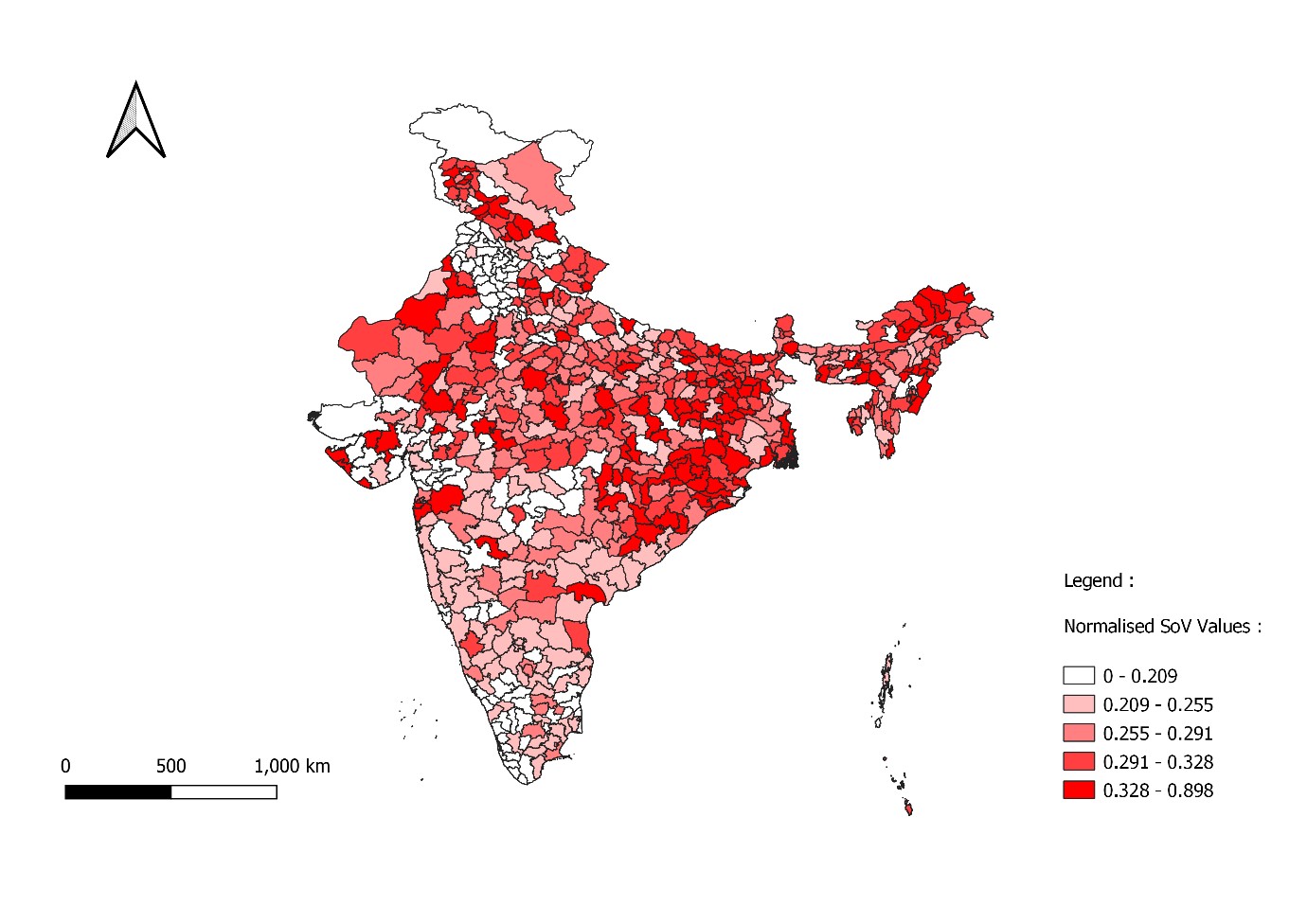
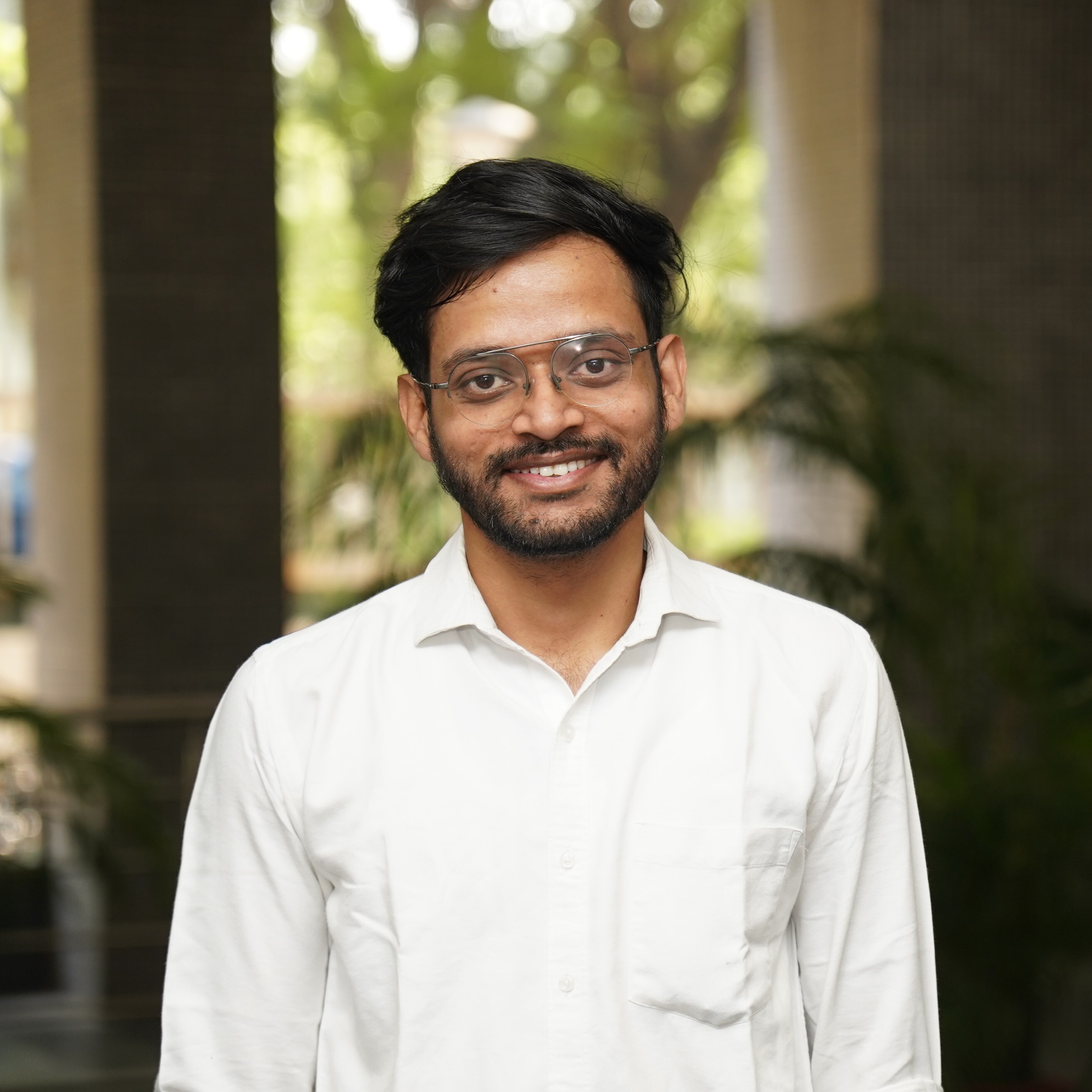
I am currently pursuing my doctoral degree in the Department of Environment Science and Engineering, Indian Institute of Technology Bombay. With background of Masters in Environmental and Water Resources Engineering from Indian Institute of Technology Hyderabad, my doctoral work focuses on improvement and better understanding of flood generation within the framework of flood hazard and risk assessment. Further improving and understanding the large scale flood modeling.
Floods in climate change scenarios are uncertain, and the complex interaction between the hydrological and meteorological factors makes it difficult to predict flood timings. A better understanding would help us and society to predict and combat flood. The primary descriptors responsible for flood generation are analysed for the entire India, further details are available in Environmental Research Letters, Parmar et al., 2025.
Global Flood Models (GFMs) capable of physics based flood modelling at large scale have it's advantages and disadvantages. Particularly for flood hazard assessment the implications of using GFMs on population exposure and risk assessment can have devastating impacts. The hazard assesment using GFM is found to be highly uncertain in populous regions. Further details are available in Environmental Research Letters, Parmar et al., 2025.
As an interdisciplinary field student and research enthusiast, I think we should strive to merge each field and find a better solution and future.
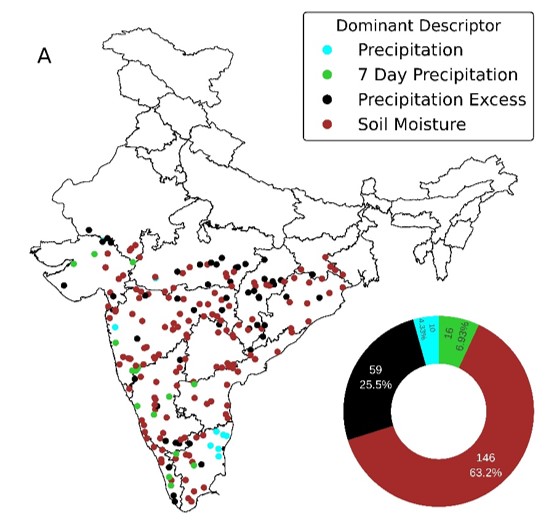

I am currently an M.Sc.-Ph.D. student at the Indian Institute of Technology Bombay, in the Department of Environment Science and Engineering (ESED), since 2019. I am working with Prof. Subhankar Karmakar on the ‘First Assessment of Compound Risk from Tropical Cyclones over India’. In 2018, I graduated from Anugrah Narayan College, Patna, with a Bachelor of Science degree in Environment and Water Management. I got qualified in IIT JAM Mathematics with AIR56 and got admission in M.Sc.-Ph.D. dual degree in Environment Science and Engineering at IIT Bombay. For my master’s thesis, I have worked in the hydro-meteorology/climatology domain, exploring the multihazard/multivariate aspects of hydroclimatic/hydro-meteorologic extreme events to consider excess additional risk from compounding.
Simultaneous or successive extremes weaken emergency response systems at the local to the national level and reduce the resilience of natural and human infrastructure systems, leading to “loss amplification”. India is the worst affected region of the world by tropical cyclones, which are inherently compound/multivariate in nature. I am working to develop a first-ever comprehensive state-of-the-art framework of compound risk to tropical cyclones over India following IPCC AR6 (2022) guidelines. This compound risk map will facilitate identifying optimal mitigation and adaptation strategies for sustainable development (e.g., coastal flood management) in India.
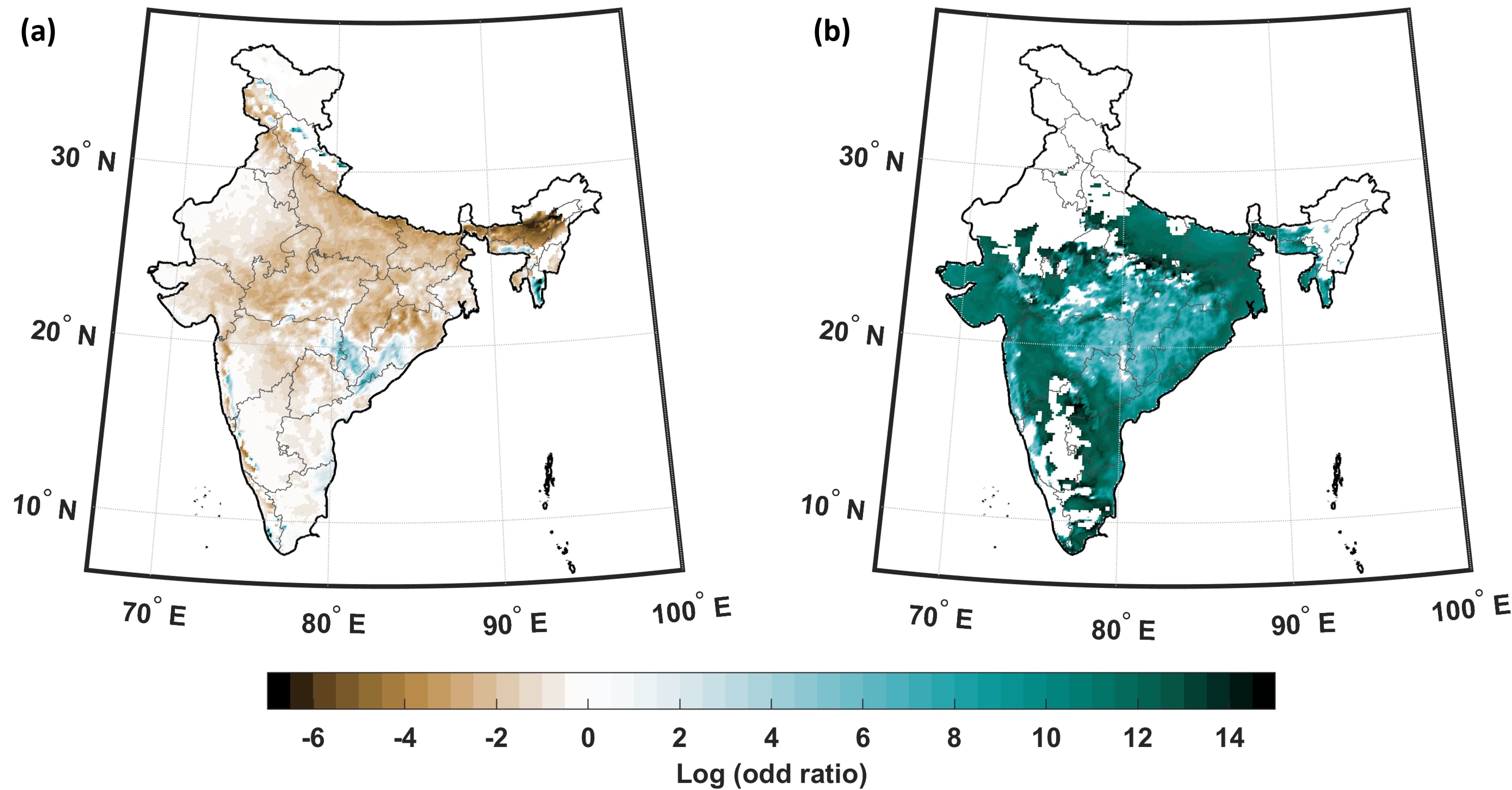
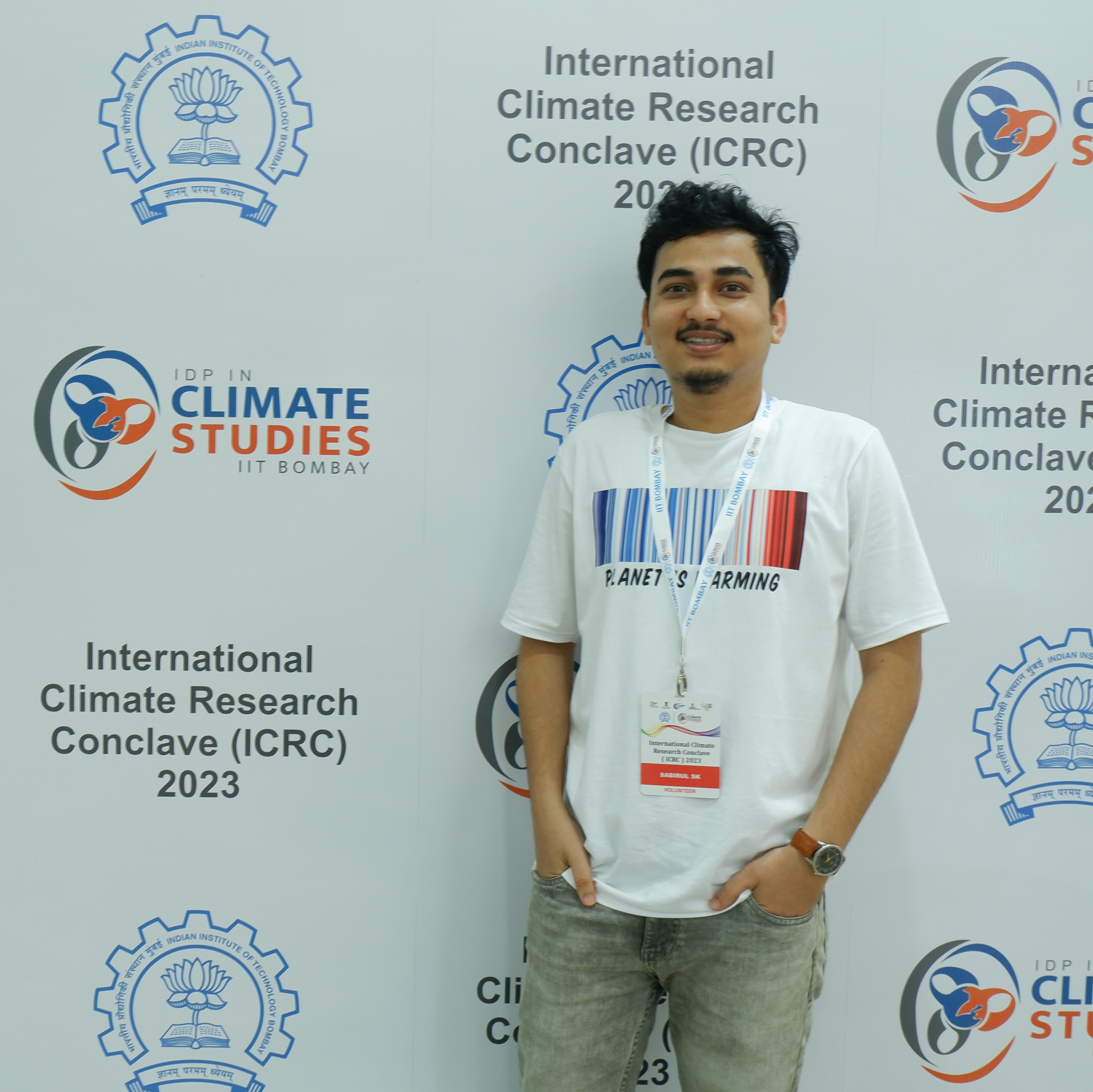
Motivated by a desire to make a positive difference in my community, I believe that conducting study on earth and environmental issues can provide some solutions that can help this civilised society. These solutions are not only beneficial to people's lives, but also represent the future of a progressive nation. I've always been the one to come up with novel and simple solutions to the difficulties that our civilised society is today confronted with. And it was because of this that I began to respect creativity and the urge to give some solutions.
I am currently a PhD. student at Indian Institute of Technology, Bombay, in the Interdisciplinary Program in Climate Studies since January 2023. I am working with Prof. Subhankar Karmakar on the ‘Flood Susceptibility Mapping'. My flair for geography during my school days laid the foundation of Geography as a major for my Bachelor of Science and Master of Science as well as Master of Technology in Geoinformatics. In 2020, I graduated from Aliah University, Kolkata with 5 Year Integrated B.Sc-M.Sc in Geography. After that, I also graduated from University of Madras, Chennai with a degree of M.Tech in Geoinformatics in the Year 2022, June.
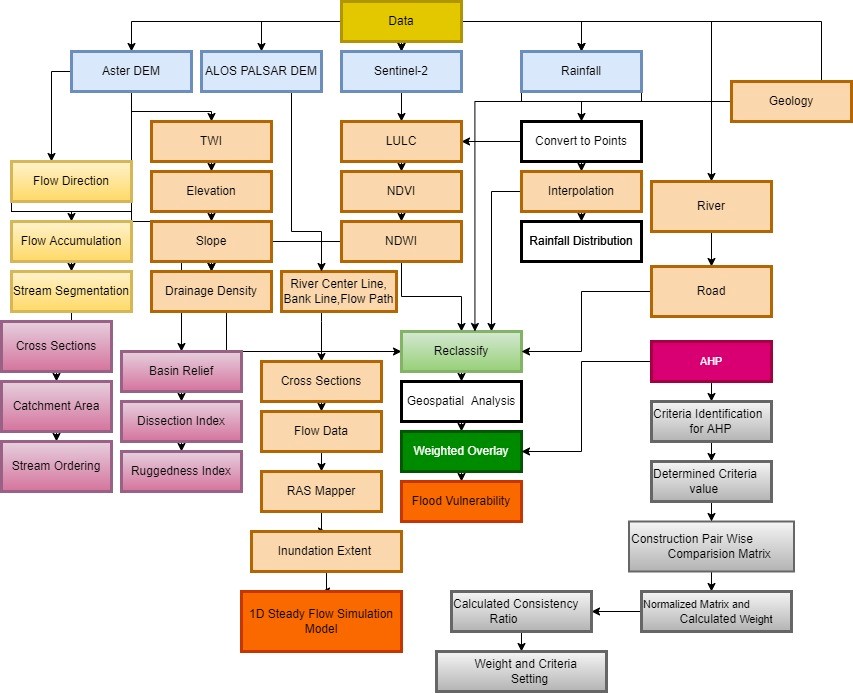
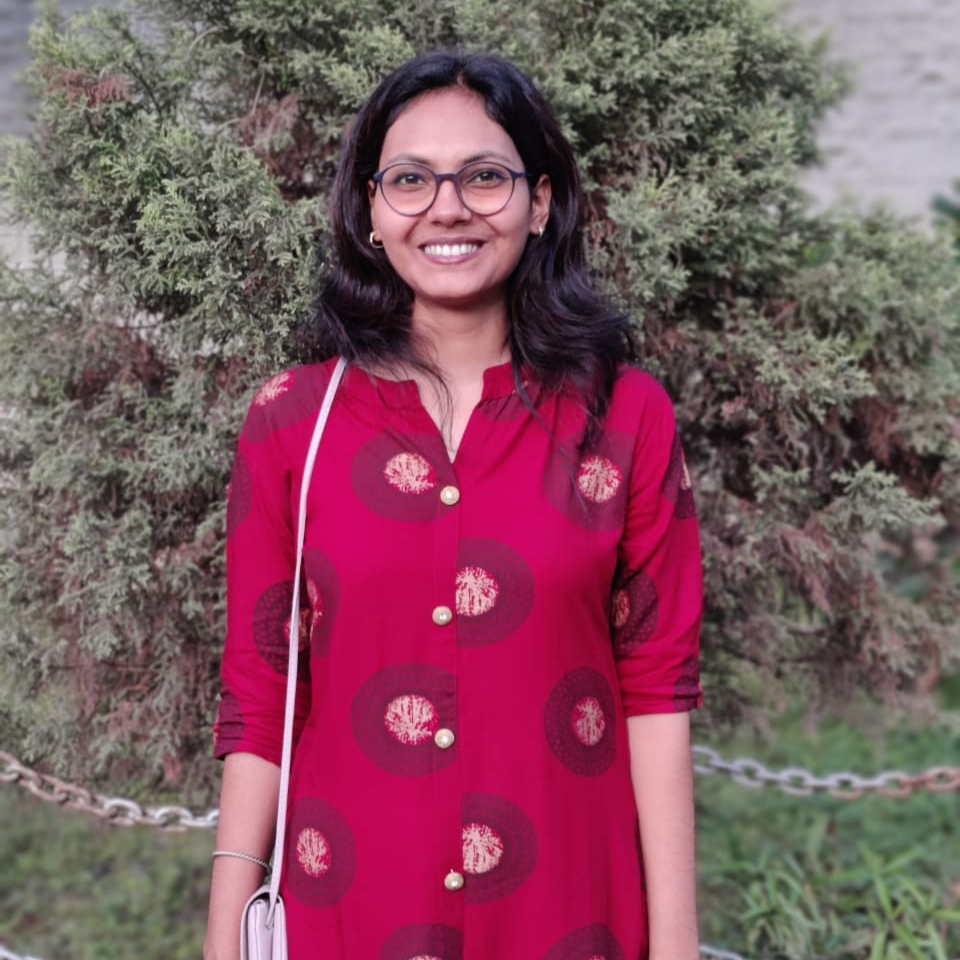
Ph.D. is a degree that not only allows achieving the designation of Doctor but also a way to serve society through helpful research. I am an M.Sc. – Ph.D. student currently working on the topic ‘Coastal Flood Hazard Assessment’ under the supervision of Prof. Subhanakar Karmakar.
I have completed my B.Sc. (Hons) from Banaras Hindu University, Varanasi, in Chemistry. I am highly interested in maths, so I chose a modeling topic for my M.Sc. project. In the project, my objective was to calculate the hazard index for all coastal districts of India. Recently I completed my M.Sc. and looking forward to starting my Ph.D. journey.
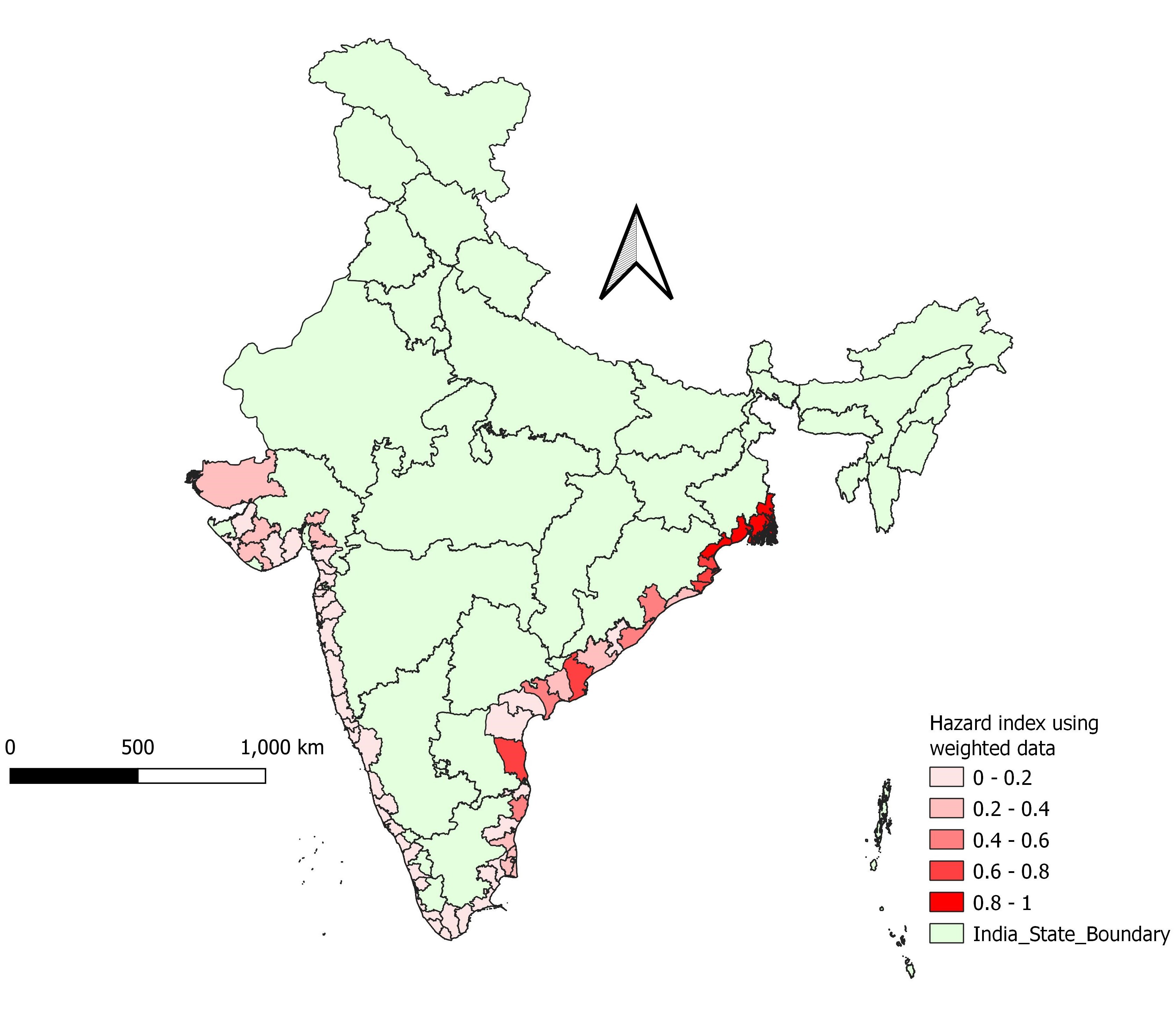
| Graduating Year | Name | Current Affiliation | Designation |
|---|---|---|---|
| 2022 | Naveen Sudharsan | The University of Texas at Austin | Postdoctoral Fellow |
| 2022 | Mousumi Ghosh | The University of Alabama | Postdoctoral Fellow |
| 2021 | Pratiman Patel | National University of Singapore | Postdoctoral Fellow |
| 2020 | Aditya Gusain | Environmental Management Centre Pvt Ltd | Principal Environmental Engineer |
| 2019 | Mohit Mohanty | Indian Institute of Technology, Roorkee | Faculty |
| 2019 | Tarul Sharma | International Water Management Institute (IWMI) | Researcher - Climate change and water risk modeler |
| 2019 | Jitendra Singh | Institute of Atmosphere and Climate Science, ETH Zurich | Postdoctoral Fellow |
| 2018 | Vinay Yadav | Indian Institute of Technology, Kharagpur | Faculty |
| 2017 | Harshit Mishra | Indian Institute of Technology, Kanpur | Research Associate |
| 2016 | Vittal H. | Indian Institute of Technology, Dhanbad | Faculty |
| 2016 | Sherly M. A. | TERI School of Advanced Studies | Faculty |
| 2015 | Vikas Varekar | Veermata Jijabai Technological Institute, Mumbai | Faculty |
| 2015 | Tejaswini D. Nalamutt | Pillai HOC College Of Engineering and Technology | Faculty |
| 2013 | Pradip P. Kalbar | Indian Institute of Technology, Bombay | Faculty |